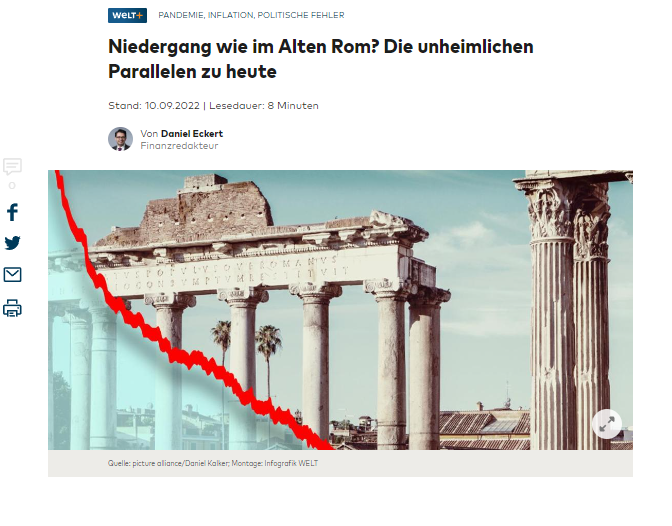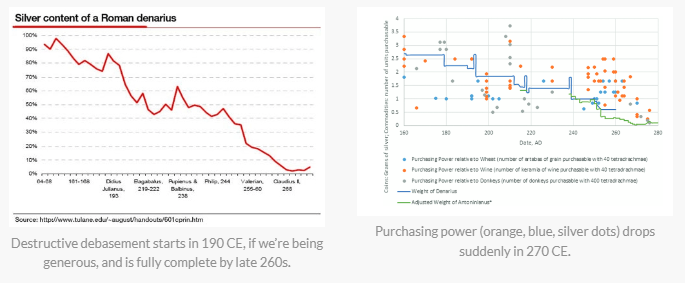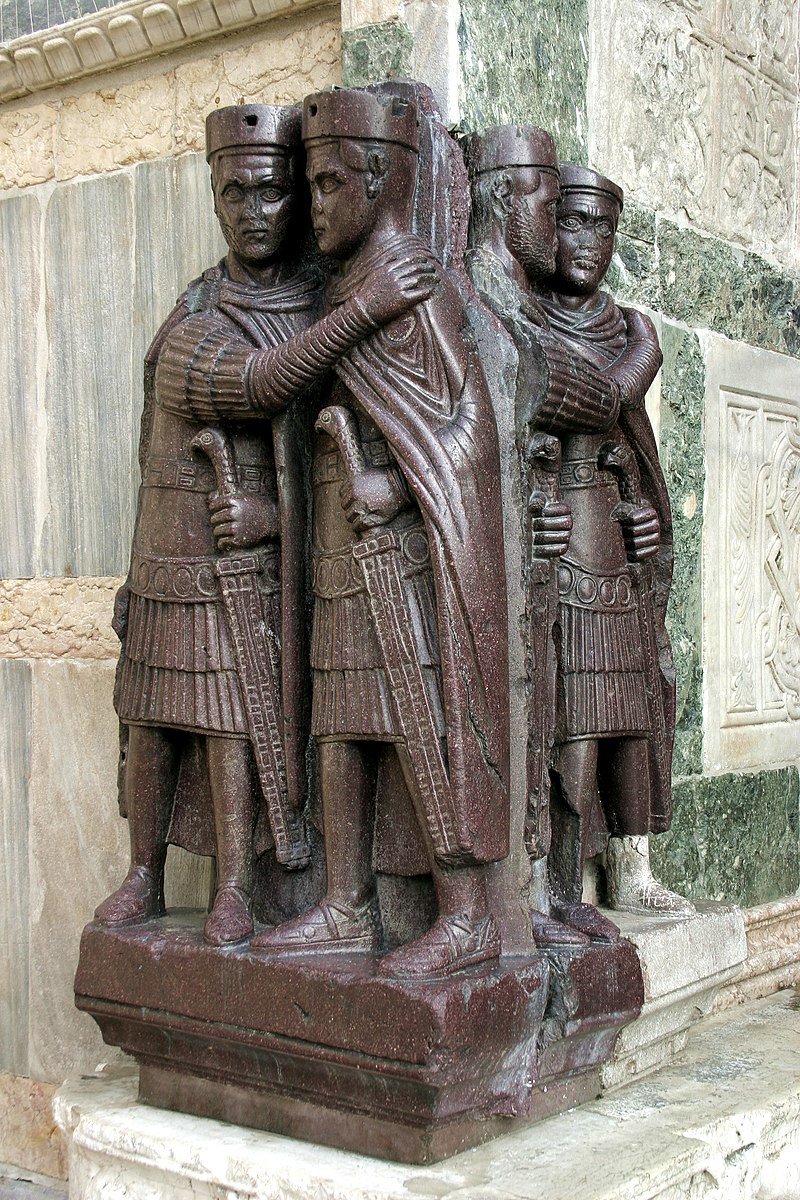Inflation, Germans and Ancient Rome: what are the real parallels

In the throes of the usual inflationary terror, without even understanding the reason well, the Germans have now started in historical apocalyptic confrontations to explain the current situation. Today the German newspaper Die Welt, on its online front page, started with a disturbing but interesting parallel: "Pandemic, inflation, political errors:" Decline as in ancient Rome "

Welt draws a parallel between the disasters of the end of the Roman Empire and the present ones. the problem is that the comparison is not very realistic in detail, but highlights an unequivocal fact, namely the failure of the governance of microsystems.
Comparing Covid-19 with Galen's plague (2nd century) or Cyprian's plague (3rd century) is at least offensive: even if it is not clear which disease it was (hemorrhagic fevers? Smallpox? A very virulent form of measles? Typhus?) the epidemics that hit the Toman Empire were something devastating, with very high mortality rates so much that they impacted on the availability of workforce, because the great plague of the Roman Empire, after the end of its expansion, it was precisely the great shortage of manpower that halted its economic development.
Even the debasement of money, that is, the decline in weight and silver of Roman money, was not a direct cause of inflation. The decline in the stock, which began very strongly with Didio Giuliano, had no inflationary effect, but the latter exploded around 270, many years later.

The reason is simple and should still make us think now: silver was not eaten at the time, so the inflationary problem was not essentially caused by an excess of money, but by a shortage of goods that came to be produced. with the crisis of the third century, the civil wars between the various emperors and the political chaos that broke out at that time.
Yet there are similarities between the Roman Empire and the current crisis:
- the demographic crisis, at the time caused mainly by the epidemic and the drop in the birth rate, today attributable only to the vertical drop in the birth rate. At the time the problem was resolved only after the fall of the Empire, due to changes of a moral and religious and agricultural technological nature;
- huge political errors. The empire was destroyed by civil wars, religious persecutions and enormous strategic errors (against Parthians and the Sassanids or the Goths). Today I leave it to the reader to list the huge number of mistakes we are making;
- the inability of maxi political structures to find solutions to problems created by their own gigantism. At the time the solution was to divide the empire in two and then in turn into four, between "Augusti" of the West and the East and subsequently, within the same with the Caesars, in the structure of the Tetrarchy of Diocletian

The tetrarchy of Justinian
- The subdivision of the Empire did not work, or rather it did not work everywhere: in the West the problems were too deep to be solved and everything was resolved in the fragmentation linked to the birth of the various barbarian or Roman barbarian kingdoms. In the East, ethnically more stable and homogeneous, the situation stabilized, at least for a couple of centuries until the Islamic explosion.
So the parallels with the Roman Empire are risky: Rome had much deeper structural problems than ours, but we have a much greater political incapacity. Furthermore, our demographic problem is much more radical, which cannot be solved only with an ethical and agricultural evolution. Among other things, what ethics do we have now, which is not self-destructive.
Roman civilization did not die, but it evolved, merging with Christian and barbarian contributions, laying the basis on which medieval Europe developed. What disappeared completely were the political and military structures. Even today it will probably be necessary to dissolve the bankruptcy structures of the European Union as it is, before we can take a step forward in solving the crisis.

Thanks to our Telegram channel you can stay updated on the publication of new articles of Economic Scenarios.
The article Inflation, Germans and Ancient Rome: what are the real parallels comes from ScenariEconomici.it .
This is a machine translation of a post published on Scenari Economici at the URL https://scenarieconomici.it/inflazione-tedeschi-e-roma-antica-quali-sono-i-veri-parallelismi/ on Sun, 11 Sep 2022 10:45:40 +0000.
